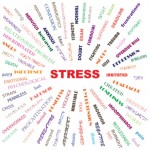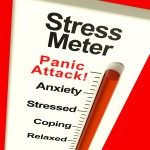RELAX – April 16th is National Stress Awareness Day and it falls smack-dab in the middle of National Stress Awareness Month. April 16th is the day to assess the personal, family and work place stress that exists in your life. This is also your opportunity to consider what you can do to be pro-active about reducing the stress you experiences on a daily, monthly and annual basis.
Many individuals experience stressful lives and often that stress begins in the workplace. Short term and one-off projects as well as long-term ongoing stress in a fast-paced, high-pressure career may be significant factors in how stress factors in your life. Workplace stress can be profoundly unpleasant and at the same time seriously affect health (both physically & psychologically), daily work efforts and relationships with both colleagues and loved ones.
Stress Awareness
A widely accepted definition of stress is a condition or feeling experienced when a person perceives that demands exceed the personal and social resources the individual is able to mobilize. In short, stress is the feeling of being “out of control.”
Statistics show that 1/3 of Canadians feel that they are constantly under stress trying to accomplish more than what they can effectively handle. Reports also indicate that 2% of Canadian workers believe they are on the verge of a breakdown, and 50% of Canadian workers ages 25-44 worry that they do not spend enough time with friends and family.
Although it is a well recognized fact that reducing stress levels in the workplace is beneficial to all, unfortunately it seems to be so hard to be aware of it while trying to keep up with everything else. More than 60% of employees are impacted by chronic stress that exacerbates health, communication and produces performance problems.
The 5 types of extreme stress
- Physical: headaches, illness, fatigue.
- Social: negativity, blaming things on others, missed deadlines, working through lunch.
- Cerebral: clock-watching, errors in assignments, minor accidents, absent-mindedness, and indecisiveness.
- Emotional: anger, sadness, and crying, yelling, feelings of being overwhelmed, depression.
- Spiritual: brooding, crying, wanting to make drastic changes in life, not relating well with people, distancing themselves from personal relationships.
Instinctive human stress reactions
Fight or Flight response
Fight of Flight is a basic, short-term survival response that is triggered when we experience a shock or when we see something that we perceive as a threat. The problem with the fight or flight response is that, although it helps us deal with life-threatening events, we can also experience it in everyday situations – working to short deadlines, speaking in public, dealing with conflict with others. In these types of situations, a calm, rational, controlled, and socially-sensitive approach is often more appropriate. Stress awareness means learning to identify the common physical signs that may trigger the fight or flight response:
- Frequent headaches.

- Cold or sweaty hands and feet.
- Frequent heartburn, stomach pain, or nausea.
- Panic attacks.
- Excessive sleeping, or insomnia.
- Persistent difficulty concentrating.
- Obsessive or compulsive behaviors.
- Social withdrawal or isolation.
- Constant fatigue.
- Irritability and angry episodes.
- Significant weight gain or loss.
- Consistent feelings of being overwhelmed or overloaded.
General Adaptation Syndrome (GAS) response (3 distinct phases)
- Alarm phase – where we react to the stressor.
- Resistance phase – where we adapt to, and cope with, the stressor. The body can’t keep up resistance indefinitely, so our physical and emotional resources are gradually depleted.
- Exhaustion phase – where eventually, we’re “worn down” and we cannot function normally.
The exhaustion phase of GAS actually comes from an accumulation of very many fight or flight responses over a long period of time. Long-term stress can also cause conditions such as burnout, cardiovascular disease, stroke, depression, high blood pressure and a weakened immune system.
To better manage GAS, conduct a careful job analysis, identify the most important priorities at work, learn and implement good time management strategies, stop negative thinking habits and focus on becoming a positive thinker using affirmations and visualization. Other defenses mechanisms include:
- Use techniques such as meditation and physical relaxation to calm yourself when you feel stressed.
- Take advantage of your support network – this could include your friends and family, as well as people at work and professional providers, such as counselors or family doctors.
- Get enough exercise and sleep , and learn how to make the most of your down time , so that you can recover from stressful events.
6 Myths about stress
 Chronic stress takes a more significant toll on your body than acute stress does. It can raise blood pressure, increase the risk of heart attack and stroke, increase vulnerability to anxiety and depression, contribute to infertility, and hasten the aging process.
Chronic stress takes a more significant toll on your body than acute stress does. It can raise blood pressure, increase the risk of heart attack and stroke, increase vulnerability to anxiety and depression, contribute to infertility, and hasten the aging process.
Myth #1: Stress is the same for everyone – identifying your triggers and what you tend to do under stress are essential first steps in developing your own successful stress management routine.
Myth #2: Stress is bad – not always. In some circumstances stress can help you survive a dangerous situation or be a great motivator to getting things done.
Myth #3: Stress is everywhere, so you just have to live with it – many aspects events in the modern world may lead to increased stress but stress is not everywhere and you don’t have to simply accept it.
Myth #4: The most popular strategies for reducing stress are the best ones – this is a dangerous myth to believe. There is no one-size-fits-all stress management program.
Myth #5: No symptoms, no stress – not true. Don’t ignore the stress in your life simply because you may not be suffering at this moment. Developing healthy stress management routines early in life will go a long way in helping get through the more challenging times when they arise.
Myth #6: Only major symptoms of stress require attention – minor symptoms will eventually turn into major symptoms of stress if not effectively managed. Think of the minor signs of stress as warning flags.
In summary
Without a doubt, stress is a fact of life in today’s work. Don’t wait for stress to make you ill before you do something about it. Once you gain control over the stress in your life, your mood will naturally improve, as will your sleep, productivity, and physical health. Life is just too short to allow your work and/or job to physically make you ill. Create Calm in Your Career and celebrate National Stress Awareness Day by relieving your stress in a long term way.
Take the quiz – Are you stressed out?
If monitoring your stress levels is important to you, download Arianna Huffington’s GPS for the Soul to help you better manage your stress for iPhone.


